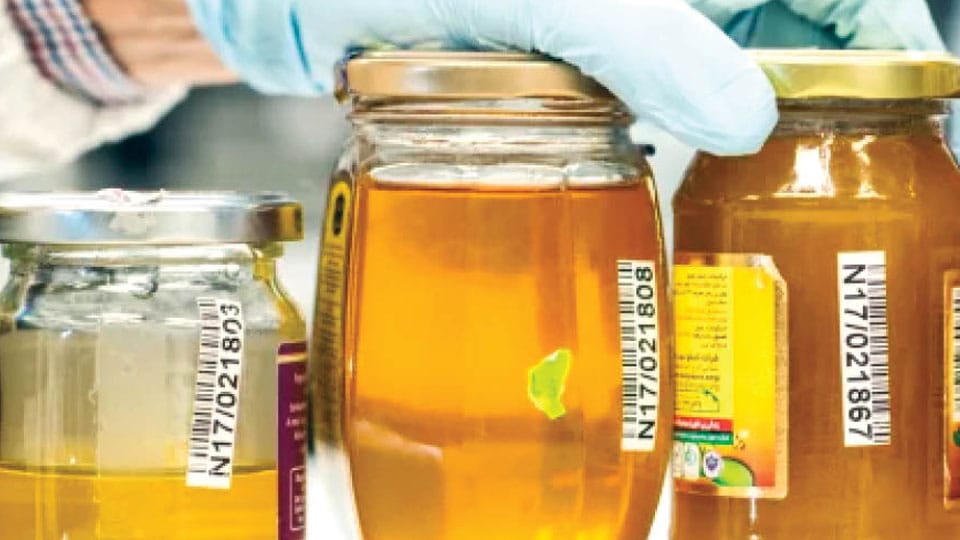By Vikram Muthanna
Last week, we got some bitter news about something sweet. The Centre for Science and Environment (CSE) reported that when they subjected 13 prominent brands selling honey to a sophisticated test in Germany for adulteration, except three, all other brands failed.
The only three brands that passed were Saffola, Markfed Sohna and Nature’s Nectar.
As fear of refined sugar has increased, so also adulteration of other sources of sweetness. Best example is jaggery.
As jaggery gained popularity as an alternate to sugar, its adulteration started. Mandya jaggery was very popular until jaggery makers from Uttar Pradesh came calling and started adding chemicals to rapidly increase production capacity and visual appeal.
In a report submitted to the Government by the Co-operation Department, it found chemicals like “calcium hydroxide, sodium hydrosulphite (hydrose), sodium formaldehyde sulfoxylate (safolite), ortho-phosphoric acid, seashells, baking soda, oil (castor/coconut) and orange-red powder (artificial food colouring) in jaggery blocks”! We educated urbanites find it hard to even pronounce the names of these chemicals which makes us wonder if farmers are making jaggery or chemical engineers?
This is a serious issue because India accounts for over 70% of world’s jaggery production and such practices will ruin our reputation and income. Already Mandya jaggery brand has taken a hit as the use of chemicals has significantly reduced its shelf-life which has forced many wholesalers to sell their product in distress.
We in India don’t seem to take food adulteration seriously. Be it the Government, the producer or the consumer. It is common knowledge that fruit-sellers use calcium carbide because it reacts with the moisture emanated by the respiration of the fruit. And when it does, a gas called acetylene emanates which helps in ripening the fruit. This gas is carcinogenic! Yet, rarely do you see the Government personnel raiding these “ripening sheds.”
Vegetables are not spared either. Bittergourd and lady’s finger are dipped in copper sulphate water to make them look greener. Brinjals are coated with old oil to give them a shine; carrots are dipped in red dye-water and watermelons injected with gulal to make them red from inside. Rarely do you see officials confronting, let alone arresting these colouring artists.
Most of us turn a blind eye to this saying that we cook hot meals and all “these things die”… not really.
But the fallout of this food adulteration should be the rebirth of kitchen gardens and organic farms. It’s time to move on from show gardens to kitchen gardens.
Every year during Dasara the Government has a competition for the “Most beautiful home garden.” May be the same publicity must be given to “Best kitchen garden.”
P.S.: Speaking of organic food, once a husband went to a store to shop for his wife who was very health-conscious and wanted organic, pesticide-free vegetables. The husband walked upto the section where he saw vegetables stacked and asked the sales man if the vegetables were organic. The sales boy didn’t understand. The irritated husband picked up some vegetables and said, “Listen, my wife is health-crazy. So I need to know have these vegetables been sprayed with any harmful pesticides?”
The petrified sales man replied, “No, Sir. You’ll have to do that yourself!”
Ramakrishna Ashram Swamijiand Coorg Honey
Speaking of bees and honey, once upon a time Coorg was the top producer of honey.
In the early 1940s, there used to be a Government-appointed “Bee Man” whose job was to go from house to house, from estate to estate, teaching planters about the importance of bees to the environment and also teach them how to maintain a Bee Box and extract honey.
In fact, Scientific Bee farming in Kodagu was initiated by Sri Shambhavananda Swamiji, the man who founded the Sri Ramakrishna Vidyashala in Mysuru. In 1928, when Swami Shambhavananda became the first President of Sri Ramakrishna Saradashrama in Ponnampet, Kodagu, he initiated a project for Bee-keeping. Since he was born in Kodagu as Chengappa into the Thelapanda family, he knew that Kodagu was very suitable for bee-keeping and could contribute to the local economy.

Soon he prepared the first apiary and in 1936 set up the ‘Coorg Honey and Wax Producers Co-operative Society Ltd.’ This became the first honey producers co-operative in India.
Shambhavananda Swamiji even developed a new method of bee-keeping now known as ‘Coorg Standard Hive.’ No wonder Coorg came to produce almost 50% of all honey produced in Karnataka.
Now, if any one has space around their homes or in their farms there are many workshops that teach bee-keeping. In fact, there is an Apiculture Training Centre at Bhagamandala, Kodagu, where one can take a few weeks training in bee-keeping.
It may be recalled that the Government in 2014, to increase production and marketing of Coorg Honey, ordered the setting up of a “Honey Park” at Bhagamandala, Kodagu. The park was to be managed by the Food Processing Division of the Agriculture
Department. Later, Rs. 60 lakh was also released for the project. An old building was refurbished and not much else has been heard. Now, six years on neither is there a Park nor is there any Honey. Guess, like most Government projects it was all about the “Money Honey”?
e-mail: [email protected]








Recent Comments